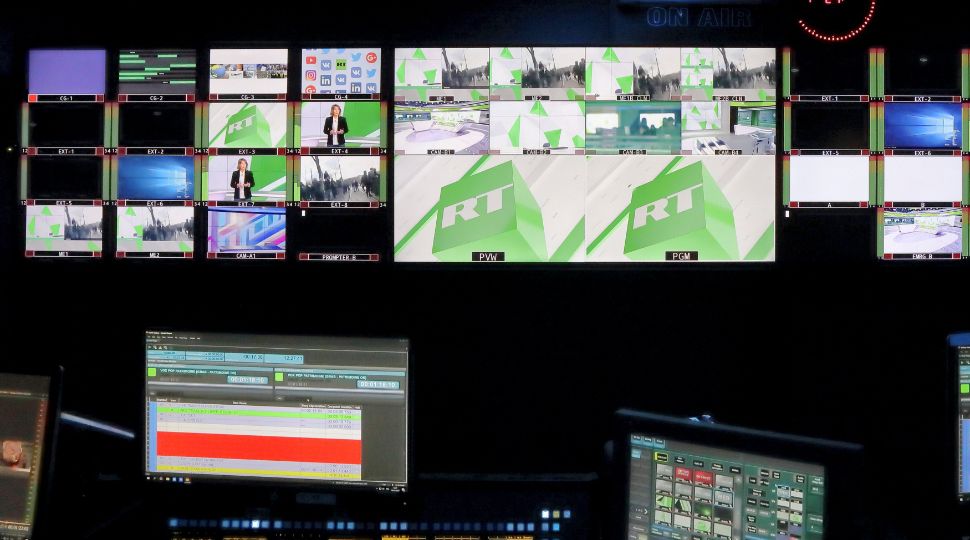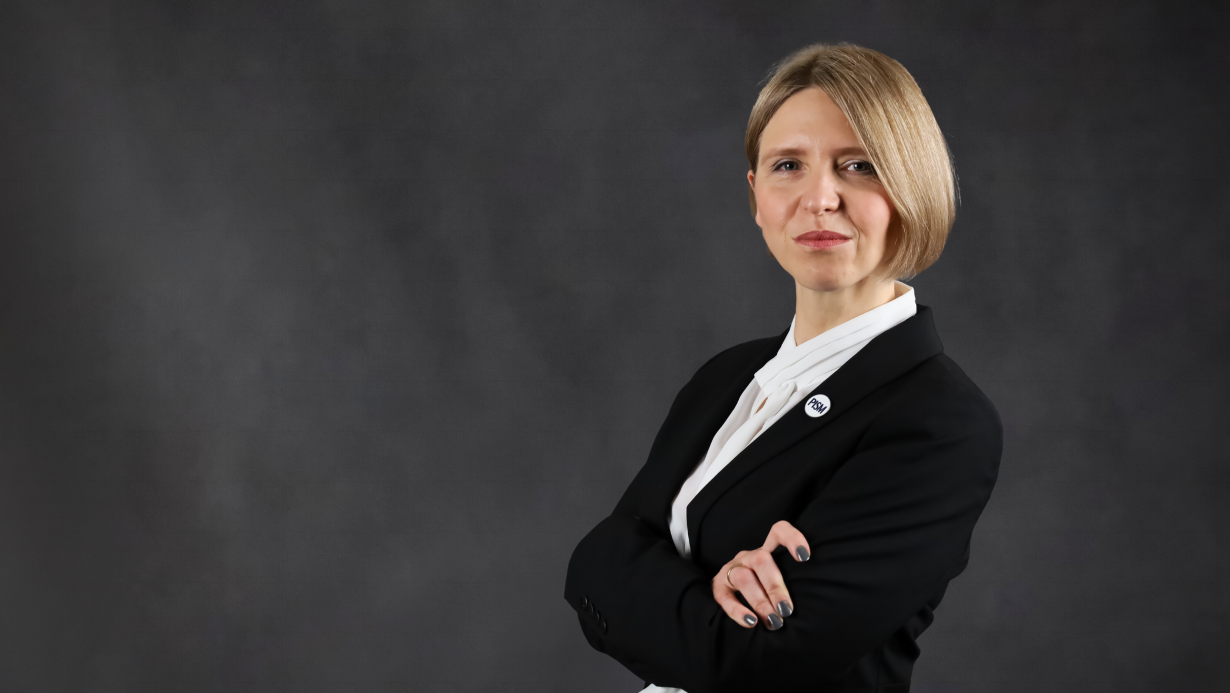Countering Russian Disinformation in the European Union

According to the European Commission (EC), disinformation is understood as verifiably false or misleading information that is created, presented and disseminated for economic gain or to intentionally deceive the public, and may cause public harm.
Russian Disinformation
Russia intensifies disinformation campaigns against the EU during elections (such as those to the European Parliament), referendums (on the UK’s EU membership), and during times of increased internal tensions (protests in Catalonia and the “Yellow Vests” in France). The goal is to weaken the EU through social polarisation within the Member States. In this way, the Russian authorities have an indirect influence on internal EU processes. The aim is that positions favourable for Russia such as the abolition of economic sanctions imposed after the annexation of Crimea, aggression against Ukraine, and the inclusion of Russia in talks on European security will emerge in public debate. Security Commissioner Julian King confirmed that Russian sources were trying to target the European elections in May, aiming to suppress turnout and influence voter preferences. Russian disinformation campaigns falsely attributed statements to politicians (for example, that French President Emmanuel Macron wants to expel some countries from the EU), and propagated untrue information about the interference of German intelligence in the fall of the government in Austria in May.
Russia uses traditional media and the Internet, in particular, social media, to spread disinformation. Russian pro-government media such as RT and Sputnik operate in 100 countries and broadcast programmes in 30 languages. With its annual budget of approximately €270 million, RT can compete with BBC World (€300 million) and France Media Monde (owner of France24, approximately €260 million). One of the best-known examples of Russian disinformation was the January 2016 report by a Russian journalist about the kidnap and rape of Lisa, a girl of Russian origin, by immigrants in Germany. This situation triggered a wave of anti-Muslim demonstrations in Germany, but it soon became clear that it was untrue. The Internet Research Agency (IRA) “troll factory” owned by Evgeni Prigozhin, an associate of Russian President Vladimir Putin, is an important tool of Russian disinformation policy. Operating since 2013, its monthly budget is around €1 million and it employs around 80 people, divided across foreign sections. The task of the trolls is to conduct discussions in various European languages and to induce extreme emotions, angering people on the Internet. Most often, they question the democratic legitimacy of the EU and play up sensitive topics in public debate such as migration, sovereignty and values.
The channels disseminated by Russian disinformation are selected depending on the country and target group to which the message is addressed. In Slovakia and the Czech Republic, they use alternative media and social media. In Hungary, Russian disinformation is spread through the mainstream media. In Poland, Russian propaganda and disinformation are disseminated through online portals, social networks, and in particular through the activity of Internet trolls. The message is most often anti-EU, anti-NATO and anti-Ukrainian.
The EU’s Strategy
The EC identifies Russian disinformation as the greatest threat to the EU, as it is systematic, well-resourced and perpetrated on larger-scale than that of other countries. Disinformation campaigns fall under the broader issue of hybrid threats. In the new EU Strategic Agenda 2019–2024, protecting European societies from malicious cyber activities, hybrid threats and disinformation originating from hostile states and non-state players is among the most important areas of EU activity. The fight against disinformation currently focuses on increasing detection, coordinating reactions and raising public awareness of the threat.
Since March 2015, the East StratCom task force (part of the European External Action Service) has been operating as the body responsible for detecting and fighting disinformation in the EU and Eastern Partnership countries. IIts activities have complemented by the existing The European Centre of Excellence for Countering Hybrid Threats in Helsinki since 2017, designed to study and combat hybrid threats. From the beginning of its activity to March 2019, East StratCom identified 4,500 examples of Russian manipulation of facts and information. However, the group is underfunded, with a budget in 2018 of around €1.1 million, raised to €3 million (against a planned €5 million) in 2019. It also suffers from a lack of staff (only 16 full-time employees).
The EU’s task is to support the Member States in the fight against disinformation, for which they take the main responsibility. In March 2019, the EU set up the Rapid Alert System (RAS) to facilitate the exchange of information in crisis situations. Member States were required to set up contact points. In the case of Poland, this accelerated the appointment of a special cell on Strategic Communication at the Ministry of Foreign Affairs (StratCom), dealing with disinformation in relation to Polish foreign policy priorities.
The EC supports private entities that verify facts and cooperates in this respect with online platforms. In December 2018, representatives of Facebook, Google and Twitter adopted a code of practice against disinformation (Microsoft joined them in May 2019). They pledged to increase the transparency of political advertising and its financing and to block entities responsible for disinformation. The EC decided that, if these measures proved insufficient after one year, it would decide on legislative solutions.
The fight against disinformation is therefore mainly carried out at the level of EU Member States. The United Kingdom government will only spend €20 million in the next three years to fight Russian disinformation in Eastern European countries. The Baltic, Scandinavian and Czech states also have extensive experience in this field, using cooperation at the governmental and non-governmental levels, and engaging civil society in the fight against Russian disinformation.
Conclusions and Prospects
The EU sees a threat from Russian disinformation and systematically extends the catalogue of institutions to fight it. The actions of the Member States and the EU are still inadequate compared to Russian capabilities and resources, all the more so because the effectiveness of Russian disinformation activities also encourages other undemocratic states (Iran, North Korea and China) to apply similar practices.
At the international level, it would be advisable to review the capabilities of the EU institutions to counteract disinformation, similar to the review of the ability of Member States initiated under the Romanian Presidency of the Council. Poland could propose such a review, taking advantage of the fact that one of the priorities of the current Finnish presidency of the Council (launched on 1 July) is to raise awareness of disinformation and strengthen coordination between the Member States.
At the national level, it would be reasonable for the Member States to establish independent government StratCom units to help identify and combat disinformation. The current solution, based primarily on the existence of such cells within ministries of foreign affairs, is insufficient, because most such activities are limited to foreign policy and exclude coordination of activities between ministries. It would be desirable for StratCom to be able to make recommendations for governments.
Russia is in fact in a state of information war with Western countries. Therefore, counteracting manipulation in the media and cyberspace requires increased social awareness of this threat. The cooperation of EU Member States with NATO StratCom would be helpful in this respect. It is also worth using Member States’ experience in education on disinformation, providing financial support for non-governmental organisations, and learning from experts about how to fight against disinformation.



